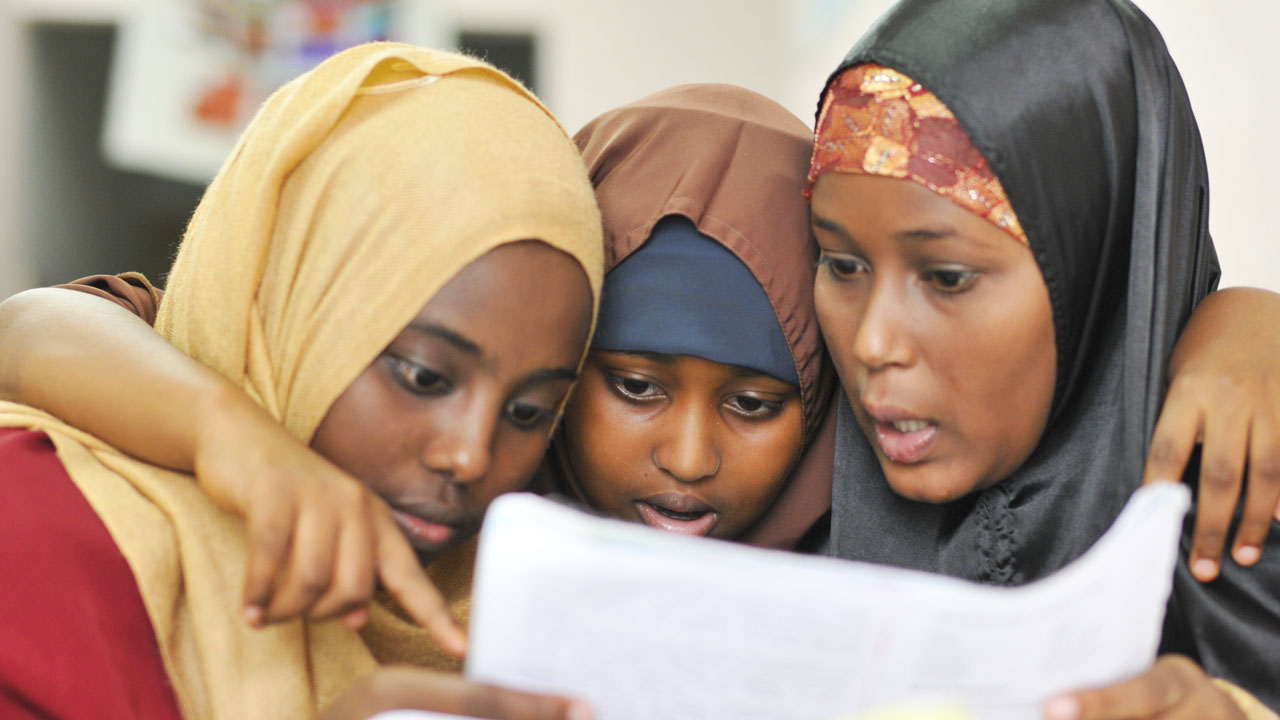
Our independent evaluation of the Girls’ Education Challenge covers a wide range of research questions, topics and outcomes.
As part of this, we also commission and manage research under the Rapid Research and Learning Fund. The reports below – through a number of research studies – answer specific research questions related to girls’ education in countries that are taking part in the GEC.
This report highlights key findings from Six years later, what has become of them? A cohort study of Somali women and girls who participated in the Somali Girls Education Promotion Programme (SOMGEP).
Commissioned by Tetra Tech through the Rapid Research and Learning Fund (RRLF), the study was undertaken by the University of Portsmouth (UoP), together with local partner, Consilient, between January and September 2022.
Read the Somali version of the report.
For more information on the report Six years later, what has become of them?, see these annexes.
This study aims to understand the impact the COVID-19 pandemic and resulting school closures have had on the education, health and wellbeing of adolescent girls in Kenya.
Commissioned by Tetra Tech through the Rapid Research and Learning Fund (RRLF), the study was undertaken by the Population Council between March and May 2022.
For more information on this report, please see these annexes.
At the height of the COVID-19 pandemic, schools in Kenya closed for 10 months, starting in March 2020. This policy brief summarises the impact these school closures had on adolescents’ education, health, and wellbeing in four counties in Kenya (Kilifi, Kisumu, Nairobi and Wajir).
This policy brief highlights results from the third round of adolescent data collection in Kilifi, Kenya, 2022.
This policy brief highlights results from the third round of adolescent data collection in Kisumu, Kenya, 2022.
This policy brief highlights results from the third round of adolescent data collection in Nairobi, Kenya, 2022.
This policy brief highlights results from the third round of adolescent data collection in Wajir, Kenya, 2022.
The Musahar community, belonging to the Dalit caste, is one of the most marginalised groups in Nepal. Over 93 per cent of people cannot read and write.
This research study, prepared by the National Institute for Development Research (NIDR) in Nepal, explores the caste-centric structural obstacles to girls’ education in the Musahar community.
You can also read a summary of the report.
The report Participartory Ethnopgraphy Research for Musahar Girls’ Education is further available in Nepali language.
Read more about our independent evaluation of the Girls’ Education Challenge (GEC) Programme.